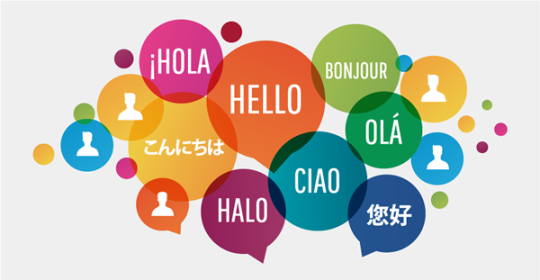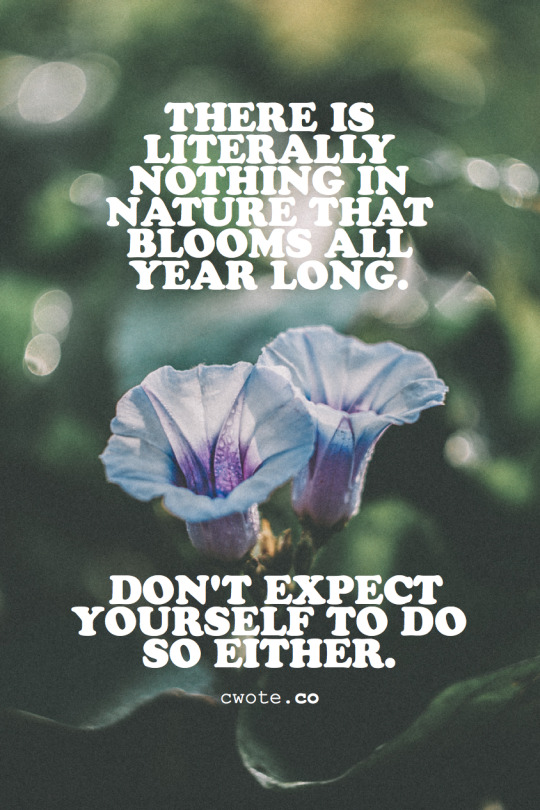Text
Learning A New Language: Why You Should and How You Would

Being a millenial generation bring us a lot of benefits that we didn’t even ask for—most of us have seen TV since we were born and now experienced a time where public telephone isn’t relevant anymore. Though there is a lot of technology to depend upon, technology made people a lot smarter, but a lot lazier. Inventions like Google Translate for example, has brought a change to people with disadvantage of language barriers, but also stir people away from learning a new language skill.
Still, being able to speak other language besides your own native tongue could give you some advantage, such as:
1. Promote professional development
According to Minnesota State’s CAREERwise, research from RosettaStone found that people who speak at least one foreign language have an average annual household income that’s $10,000 higher than the household income of those who only speak English. And about 17 percent of those who speak at least one foreign language earn more than $100,000 a year. A recent survey from Los Angeles-based recruiter Korn/Ferry International found that nearly 9 out of 10 headhunters in Europe, Latin America, and Asia say that being at least bilingual is critical for success in today’s business environment. And 66 percent of North American recruiters agreed that being bilingual will be increasingly important in the next 10 years.
2. Develop your brains
The Guardian stated, that a study suggests that bilingual speakers hold Alzheimer's disease at bay for an extra four years on average compared with monoglots. School-level language skills that you use on holiday may even improve brain function to some extent. In addition, bilingual children who use their second language regularly are better at prioritising tasks and multitasking compared with monolingual children, said Ellen Bialystok, a psychologist at York University in Toronto.
3. Change your perspectives
Athanasopoulos and colleagues asked 15 native speakers of each language to watch a series of video clips that showed people walking, biking, running, or driving. In each set of three videos, the researchers asked subjects to decide whether a scene with an ambiguous goal (a woman walks down a road toward a parked car) was more similar to a clearly goal-oriented scene (a woman walks into a building) or a scene with no goal (a woman walks down a country lane). German speakers matched ambiguous scenes with goal-oriented scenes about 40% of the time on average, compared with 25% among English speakers. This difference implies that German speakers are more likely to focus on possible outcomes of people’s actions, but English speakers pay more attention to the action itself. Bilingual speakers, meanwhile, seemed to switch between these perspectives based on the language most active in their minds.
4. Help enjoy cultural products
With a little knowledge of other language, you could easily pass for enjoying their cultural products like music and movies. Even if you still use subtitles or translations when doing so, knowing one or several vocabularies could give you some feeling of pride if you could make sense of one part of a song. Sometimes, translation could easily go wrong and have different sense even with the literal meaning translated. Knowing the original language could help you understand the real meaning and situation. In some cultures, lyrics are usually repeated towards every song – words like ‘love’, ‘need’, ‘want’, and other daily phrases could easily be recognized in songs.
5. Open doors to make friends along the way
If you love traveling, being able to speak other language could help you make friends and get to your destination real quick. Asking around is still helpful and more fun than being on Google Maps, also asking them to take pictures, or even bargaining in the market. Making friends with language other than your own will bring you new experience in communicating and learning their culture.
Based on those data, learning a language can’t only bring us a chance to understand people on the other side of the world, but also personal gain that you can’t get with any other skills. So, here are some tips to learn a new language quickly and efficiently:
1. Love the language
You can’t get anywhere with a language if you don’t love it, or you don’t want to love it. Being passionate in learning a new language is important, because you can have self motivation whenever you’re in doubt and set it as a priority.
2. Find your reason
Learning a language isn’t easy, you need full commitment to complete the task. If you do it so you can work at your dream company, or elevate your own self-development, or even watching movies without subtitles. Have a strong enough reason to keep going whenever you’re giving up.
3. Make time to practice
Ever heard of ‘practice makes perfect’? It’s true everytime. Without practice, your choice of foreign language to learn just won’t stick to your head. You will learn five words and forget ten. Make time everyday and learn your own capability, so you can get it right each time.
4. Watch movies and listen to music
To perfect your pronounciation, there is no easier way than constantly watching movies and listening to music in the language you’re learning. As stated before, some words maybe repeated through different songs and circumstances in movies. If you feel like you have heard it often enough but still doesn’t know the meaning, quickly look it up so you can understand it the next time you find the word.
5. Know your learning style
This seems so elemantary-like, but knowing your learning style is still applicable everytime. If you’re more of a visual person, draw pictures besides the vocabulary or use different colors to increase the chance of remembering words. If you’re more towards audio, record your own voice in saying the foreign and native words respectively then listen to it several times. Tutorial videos are helpful for all kind of learning styles.
6. Use it in daily life
If you feel like you lost a screw or two by speaking in monologues, you can write in diary or make some flash cards. You could also teach your family some of the easy words so you can use it whenever it’s handy.
7. Be confident
There is no use of learning a language if you’re not used to using it. You will forget it by the time you have to use it, so make sure to always spare time to write or speak the language at least once a week or before sleep. Don’t be afraid to be wrong, if you have the chance to speak to a native then you should grab it and try to talk to them with things you remember. If they know you’re not a native, chances are they will get your point or even tell you the correct way to say it.
Overall, to learn a new language is a fun experience that give you a goal amidst your daily routines. Taking courses may help you to set specific goals and a supportive environment, but even in doing so you still need a lot of self-studying to remember all the words. Applications like Duolingo may be your best bet in learning it everytime, YouTube also help if you’re struggling with pronunciations. Some language with other writings than alphabets has their own rule, example whether you write the symbol from left first or downward, so make sure to look them up too. To be completely fluent, making a friend with a native tongue is really helpful. So, are you interested in learning a language yet?
Written by Laras Sekarchanti, Communication Science Student of University of Indonesia
Source:
https://www.careerwise.mnscu.edu/news/fw/fw6715FutureWork.html
http://www.sciencemag.org/news/2015/03/speaking-second-language-may-change-how-you-see-world
http://www.fluentu.com/blog/benefits-of-being-bilingual/
https://www.theguardian.com/science/2011/feb/18/bilingual-alzheimers-brain-power-multitasking
3 notes
·
View notes
Quote
Wherever you are, and whatever you do, be in love.
Rumi (via love-inspire-universally)
451 notes
·
View notes
Photo

You are human. You’re allowed to have off days, okay?
41K notes
·
View notes
Photo

I don’t know what page number this is…64?? 66??
155K notes
·
View notes
Photo

// T H E B A L L A D O F M E A N D M Y B R A I N // L O V E
19K notes
·
View notes





















